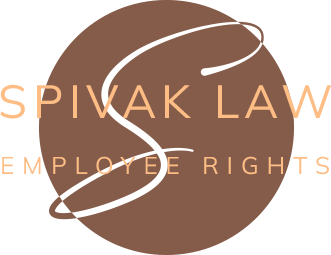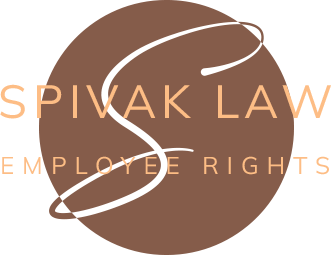
Los Angeles Wrongful Termination Attorneys
Serving clients throughout California
Monetary compensation is available to victims who are ready and willing to fight for it. We are here to help you. You can take legal action now. Contact us for your free consultation.
Most of us spend the majority of our waking hours at our place of employment. Many of us work for the same employer for several years. We view our jobs as careers that define us. When we are fired unfairly, it can be an emotionally devastating event with drastic consequences to us and to our families.
Many terminations are unfair, discriminatory, or otherwise against the law. Under such circumstances, the victim of a wrongful termination has the right to take legal action against his employer in a court of law. By exploring this website, you can become familiar with many of the rights you have in the event of a wrongful discharge.
Navigating your way through the court system can be a daunting process with many pitfalls for the unwary. The majority of us can't do it alone. An attorney specializing in employee rights can help you determine what legal course of action is right for you and prosecute your lawsuit against your former employer if necessary.
The Spivak Law Firm has provided aggressive legal representation to its clients. Attorney David Spivak has achieved many substantial verdicts and settlements. If you are the victim of a wrongful termination, please consult with us by completing our free consultation form, sending us an email, or telephoning our offices.

Victims of Wrongful Termination
We recognize that for most victims of a wrongful termination, they have lost their primary source of income and may lack the funds to hire an attorney. That is why you don’t pay us until your case is settled or won.
Your employment relationship is a matter of contract between you and your employer: You agree to provide your work to your employer in exchange for the compensation your employer pays you. When you enter an employment relationship with an employer in California, the employer generally employs you “at will.” In essence, when you are an “at will” employee, you are free to end your employment at any time, with or without notice. However, your employer can fire you for any reason or no reason. Your employer can fire you even for a reason that is unfair or irrational. You are at your employer’s mercy.
Although employment is a matter of contract, “Wrongful termination in violation of public policy” is a tort (civil crime) that you can raise as a cause of action (also known as a “claim”) in court under the right circumstances. Unlike most terminations of an “at-will” employment relationship, a “wrongful termination in violation of public policy” also known as a “Tameny claim,” is against the law because the effect of the termination is to counter some principle of California or federal law or ethic. Constitutional provisions, statutes and regulations are bases for public policies. Independent of your employer’s duties under its contract of employment with you, your employer has a duty not to violate public policy when it ends your employment relationship.

How to prove Wrongful Termination
You can prove a claim for wrongful termination in violation of public policy with evidence of the following:
- You had an employment relationship with an employer
- Your employer terminated the relationship by firing you or laying you off
- The termination decision was against a public policy (California or federal law or regulation)
- The termination harmed you (caused you to suffer damages or an injury)
You may even sue your employer for wrongful termination if you report something that you perceive to be illegal at work, even if it turns out your perception was wrong. Your reasonably-based, good-faith suspicion of unlawful or unethical activity at work will support a wrongful termination claim. Similarly, you can sue for wrongful termination if your employer mistakenly views you as a whistleblower and fires you for it, whether or not you actually “blew the whistle” on misconduct. However, you cannot sue for wrongful termination if you object to violation of a law that does not exist and are fired for it.
You may only sue your employer for wrongful termination. In other words, if your employer is a company or corporation, you can only sue the entity, not an individual supervisor or officer of the entity. This makes wrongful termination claims different from harassment claims. Sometimes, you may sue your employer for demotions, suspensions without pay, discipline, and other employment actions that are less than a termination. Some attorneys believe that an application for employment may sue an employer for refusing to hire an employee in violation of public policy.
Many terminations are violations of public policy that you can challenge in court:
- Your employer fires you for complaining about harassment at work
- Your employer fires you for taking a leave of absence to care for yourself or a family member with a serious health condition
- Your employer fires you for disclosing a health or safety hazard in the workplace
- Your employer fires you for becoming pregnant
- Your employer fires you for serving in the military
- Your employer fires you for exercising your political opinion
- Your employer fires you for asking for time off to vote
- Your employer fires you for providing a witness statement to another employee who suffered workplace discrimination
- Your employer fired you for refusing to sign a non-compete agreement
- Your employer fires you because you request to be paid your earned wages
- Your employer fires you for refusing to work off-the-clock
- Your employer fires you to prevent your pension or other retirement benefits from vesting
Public Policy Violations
Not all unfair or unjustified terminations or suspensions are “wrongful terminations” that can be sued over. Only decisions to fire an employee that violate “public policy” may be challenged in court. The most common wrongful terminations that violate public policies are those employment decisions that follow an employee’s opposition to (or protest against) unlawful activities of his employer or supervisor. Employees that are fired for their whistleblowing may sue their employers for wrongful terminations in violation of public policy. Examples of wrongful terminations include employees fired for objecting to violence, sexual harassment or discrimination, fraud, dangerous conditions and health and safety problems.
Contact The Spivak Law Firm Today


